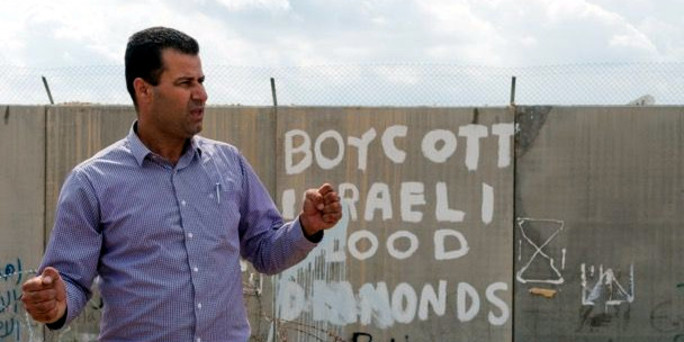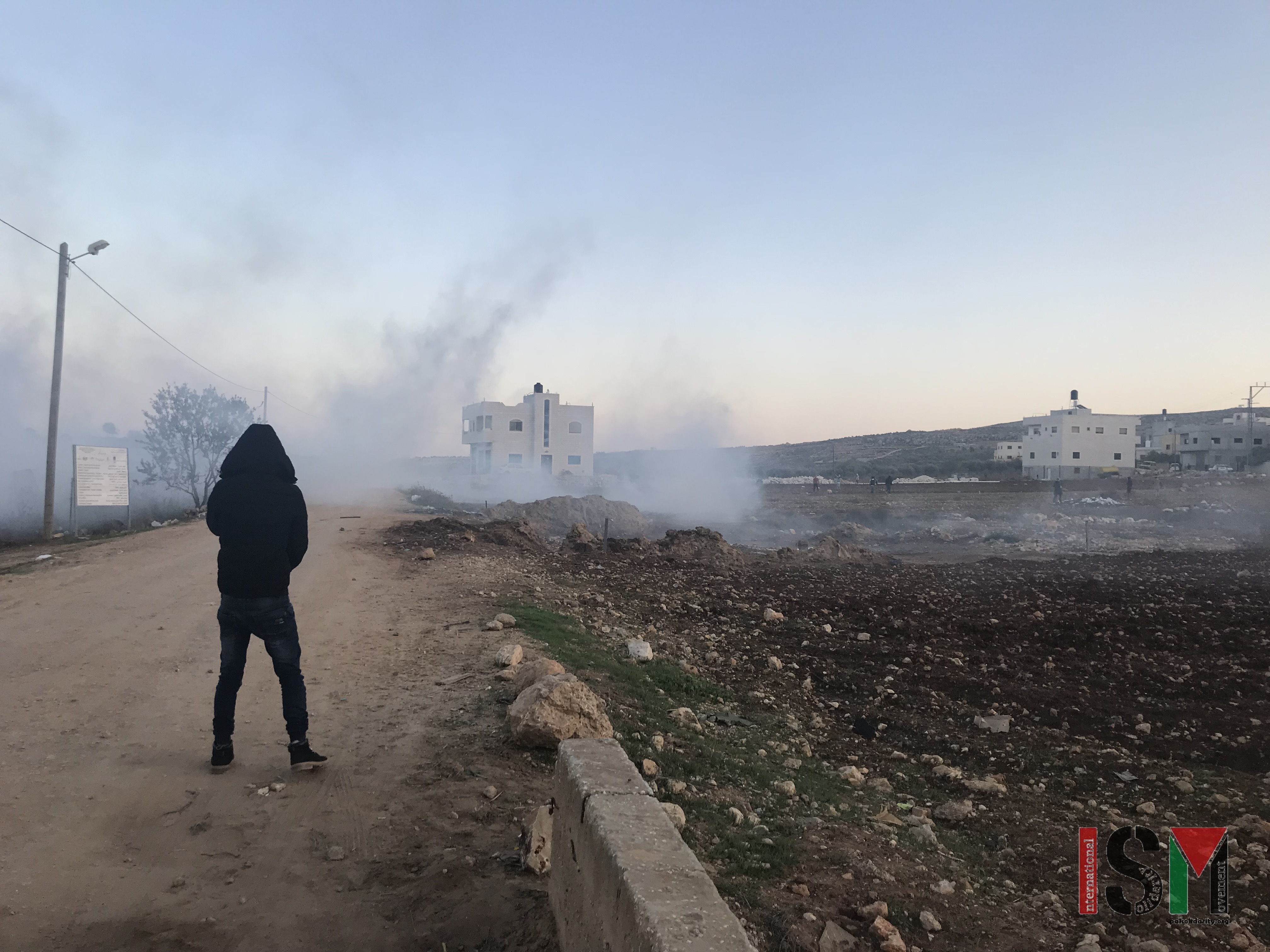Category: Reports
-
Imprisoned Human Rights Defender in Military Court
Tomorrow Abdullah Abu Rahmah will be taken once again in front of a military judge. He is being accused of “Causing damage to a military installation,” referring to Israel’s illegal Annexation barrier built on his village’s land. Abdullah stated, “The occupation has used many methods including killing, injuring, and raiding our homes in order to…
-
Than you for the donations to free Ashraf Abu Rahmah!
Ashraf was arrested again on the 27th of October 2017 while giving a group of French solidarity activists a tour of the land that his village of Bil’in won back from the nearby Israeli colonial settlement of Modi’in Elite through their creative popular protests. He was accused of throwing stones at the occupation forces, an…



